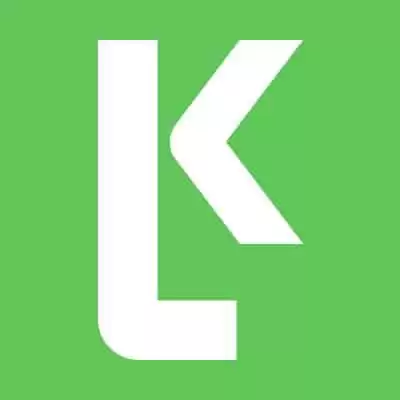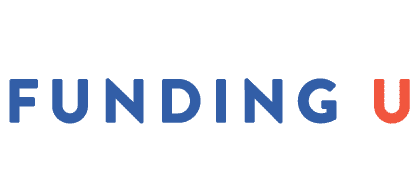Interested in the best private student loans for the 2023 year? Then you’ll find this article helpful. As you know, student loans are one of the best ways to fund your educational goals when you don’t have the resources right then and there.
Student loans, for example, can help provide you peace of mind while you chase your academic dreams. Like general personal loans, they gain interest over time and must eventually be paid back, albeit through minor installments.
According to Smarts.co,
“There are two types of student loans — federal and private. Each kind offers varying costs and benefits, with private loans tied to credit and provided through third-party institutions like banks, credit unions, state agencies or schools themselves — both colleges and universities have private loan options.”
When interest rates are high, federal and government loans tend to be more promising, particularly because they offer fixed rates and more stability. But the market currently has low-interest rates, making private student loans much more competitive.
Pretty much all private loans work the same way with one small exception: fixed versus variable rate loans. The difference between the two is simply that a fixed rate loan has a permanent interest rate tied to the contract, while a variable loan has an interest rate that may change based on the market. Variable rates tend to be lower but can be risky because market benchmarks like prime rates and LIBOR can make them shift up or down.
That doesn’t mean you should avoid reviewing the major details before accepting a loan contract.
Best Private Student Loan Options
Here are some of the best private student loan providers for 2023.
1) LendKey
| Rating | Fixed APR | Max. Loan Amount | Min. Credit Score |
|---|---|---|---|
| 4.7/5 | 3.99% to 10.32% with autopay | Cost of attendance, minus aid | Not disclosed |
LendKey offers repayments terms ranging from five to 20 years. Borrowers can include parents of students, parents of graduates and degree holders as well as current undergrad and graduate students.
To be eligible, U.S. citizens and permanent residents must have proof of citizenship or residence permit as well as proof of income. Potential borrowers can check their eligibility online and then receive offers from LendKey’s networks of community lenders.
The minimum loan amount starts at $7,500 and goes up to $250,000, with rates as low as 4.36% or 3.99% depending on if you go with a variable or fixed APR.
Don’t meet the requirements or want to qualify for a lower interest rate? LendKey allows for borrowers to add a cosigner to the loan to help borrowers meet eligibility and get the interest rate that works best for them. This isn’t the only benefit to considering a LendKey loan, they also offer unemployment protection. If you lose your job-or have just finished school- loan payments are placed on temporary hold.
LendKey
LendKey is a marketplace that connects borrowers with private student loans and refinanced student loans from credit unions and community banks. Its loans are best for borrowers who prefer to work with these institutions, rather than a big bank.
2) College Ave Student Loans
| Rating | Fixed APR | Max. Loan Amount | Min. Credit Score |
|---|---|---|---|
| 4.5/5 | 3.99% to 14.96% with autopay | Cost of attendance, minus aid | Mid 600s |
Student loans are available at College Ave Student Loans — which was founded in 2014 and is located in Wilmington, Delaware, and provides undergraduate, graduate, and parent loans to borrowers from all 50 states.
With applications that take a few minutes to finish on any device and quick decisions, College Ave has an edge in terms of speed.
At College Ave Student loans you can apply in just 3 minutes and get an instant decision. College Ave offers 4 flexible repayment options to help you make paying your student loans off easier.
Special features include: Repayment Options, US Based Customer Service, Easy Mobile Application.
- Loan term length of 5, 8, 10, or 15 years1
- No application, origination or prepayment fees required
- 0.25% reduction in the interest rate when enrolled to make automatic payments (1)
- Fixed APR of 3.99% – 14.86% [Rates include Auto-pay discount]
- Variable APR of 3.99% – 14.96% [Rates include the Auto-pay discount]
- Good or excellent credit score needed (get a co-signer if you have a bad or no credit score)
College Ave Student Loans
College Ave offers private student loans with multiple repayment options. Apply online in 3 minutes and get an instant credit decision. No application, origination, or disbursement fees.
College Ave Student Loans products are made available through Firstrust Bank, member FDIC, First Citizens Community Bank, member FDIC, or M.Y. Safra Bank, FSB, member FDIC. All loans are subject to individual approval and adherence to underwriting guidelines. Program restrictions, other terms, and conditions apply.
(1) Rates shown include auto-pay discount. The 0.25% auto-pay interest rate reduction applies as long as a valid bank account is designated for required monthly payments. Variable rates may increase after consummation.
Information advertised valid as of 12/01/2022. Variable interest rates may increase after consummation. Approved interest rate will depend on creditworthiness of the applicant(s), lowest advertised rates only available to the most creditworthy applicants and require selection of full principal and interest payments with the shortest available loan term.
3) Ascent Funding
| Rating | Fixed APR | Max. Loan Amount | Min. Credit Score |
|---|---|---|---|
| 4.5/5 | 4.21% to 15.31% | $200,000 | Not disclosed |
At more than 2,200 colleges and universities across the country, Ascent Funding is an online lender that provides undergraduate and graduate student loans.
Ascent loans are available to U.S. citizens and permanent residents who want to borrow money for their education, as well as those with Deferred Action for Childhood Arrivals status – also known as “Dreamers” – who wish to borrow money on their own.
Applicants must have a co-signer who is creditworthy and a U.S. citizen or permanent resident, among other requirements. Ascent Funding is located in San Diego.
It’s a smart option for students because:
- When students meet specific criteria and conditions, they may be entitled to a 1% cash back graduation reward.
- Undergraduate juniors and seniors may be eligible for Ascent Funding’s Non-Cosigned Outcomes-Based Loans based on their major, cost of attendance, graduation date, and other criteria. These loans are offered at a rate discount of one percentage point and must be paid automatically.
- There are no application, origination, or disbursement costs with Ascent Funding student loans.
Ascent gives you more opportunities to pay for college with or without a cosigner. Find your best option in 4 simple steps – with no application fees.
4) SoFi
| Rating | Fixed APR | Max. Loan Amount | Min. Credit Score |
|---|---|---|---|
| 4.6/5 | 3.75% to 13.55% with autopay | Cost of attendance, minus aid | Not disclosed |
SoFi provides a variety of useful perks for members to assist them in managing their student loan repayment and getting out of debt faster.
SoFi’s mission is to help its customers handle their money and repay their student loans as quickly as feasible. SoFi offers a 3.75%–13.35% fixed APR with terms of 5-20 years. It also offers 2.99%–12.13% variable APR with autopay.
SoFi loans are available to all students with a credit score of less than perfect, and the entire application procedure can be completed online. There are no additional costs associated with any SoFi loans, and students have several payment alternatives that suit their budget.
With perks like $400 off SAT/ACT preparation courses, it’s no surprise that most SoFi members would suggest the company to a friend.
$100 SoFi Bonus: If you join using our referral link you can get $100 when you take out a student loan.
5) Citizens Bank
| Rating | Fixed APR | Max. Loan Amount | Min. Credit Score |
|---|---|---|---|
| 4.3/5 | 4.18% to 10.95% | $50,000 | Not disclosed |

Citizens Bank offers a five, 10 or 15-year student loan for U.S. citizens and permanent residents. To be eligible, you must be enrolled at least part-time in a degree-granting program via an “eligible” institution. For the most part, this classification simply means accredited institutions. You must also have good credit or a qualified co-signer who meets the credit requirements.
You can receive a minimum of $1,000 or up to $90,000 for undergrads, $110,000 for graduate programs, $130,000 for business or law programs and $170,000 for medical or dental programs.
What makes this loan option promising are some of the additional benefits and features offered. If you make your payments on time and keep your credit in good standing, you can apply for a co-signer release after 36 consecutive months. Doing so allows you to free the connection of the loan to anyone who helped you obtain it and also improve your own credit in the process.
Those with an active Citizens bank account, or those who activate autopay from a bank account — it doesn’t have to be a Citizen account — will receive a 0.25 percent interest rate reduction. Finally, you can opt to make interest-only payments while you’re still in school, or you can defer payments after graduation, with a nice grace period of six months with no payments.
6) Funding U
| Rating | Fixed APR | Max. Loan Amount | Min. Credit Score |
|---|---|---|---|
| 4.3/5 | 3.49% to 12.99% | $10,000 | None |
Funding U, also known as Funding University, has been around since 2016. This is a company that offers student loans to students without credit or a co-signer at eligible four-year colleges.
Funding U doesn’t fund you based on your credit score, but your grades in school and projected earnings after graduation. If you are a junior or senior in college, you can qualify for a Funding U loan. However, if you are a freshman or sophomore, the approval process is more strict.
It’s a smart option for students because:
- You don’t need a co-signer or credit history to get a loan.
- You can see if you’ll qualify and what rate you’ll get without a hard credit check.
- DACA students with a work-eligible Social Security number can qualify.
If you wanted to apply you can see what rate you’ll get and it’s a soft credit check. The loan term is 10 years and loan amounts up to $10,000 and the range of interest rates is in line with other private student lenders.
7) Sallie Mae
| Rating | Fixed APR | Max. Loan Amount | Min. Credit Score |
|---|---|---|---|
| 4.3/5 | 3.50% to 12.60% with autopay | Cost of attendance, minus aid | Mid 600s |

Sallie Mae offers a few great benefits, with loan terms of 10 years. The loans are eligible only to U.S. citizens or permanent residents, who must be attending an eligible degree-granting school or have attended one prior to enrollment. Co-signers must adhere to the same requirements, including being a U.S. citizen or permanent resident.
Minimum loan amounts start at $1,000 and cover up to 100 percent of school-certified costs for attendance. There are no origination fees for loans offered. Borrowers can receive a 0.25 percent interest rate decrease when enrolling in autopay with an active bank account.
If there’s a co-signer, you can apply for release after 12 months of consecutive payments. You can also defer payments, establish fixed repayment plans or pay just interest while in school. No prepayment penalties exist for any loans, which means you can begin paying off your debt as soon as you’re ready.
For those of you wondering if you should go with Sallie Mae or College Ave Student Loans (currently have the lowest rates), here is a quick comparison between the two lenders.
Taking Out Student Loans? Do It Right With These 7 Tips
Your education is extremely important but getting that education can also be extremely expensive.
Many people take out private student loans in order to pay for the education they want. There are a few tips to follow in order to make sure you get the most out of your student loan without overpaying or harming your financial future.
1. Look For Scholarships
Before you start applying for loans to cover your education, take a look at what scholarships or grants you may qualify for. There are many websites where you can look for scholarships and your school will also have its own scholarships.
Scholarships and grants do not need to be repaid which means you will receive the money you need to fund your education without any debt. Apply to as many as you can in order to get ‘free money’.
2. Federal vs Private
Federal vs private student loans, which should you get?
Applying for a federal loan is something you should do right away when you consider paying for school. Federal loans have several benefits when compared to private student loans. For example, federal loans have fixed interest rates, offer deferment periods, and do not require a cosigner.
In addition, filling out a Free Application for Federal Student Aid (FAFSA) form can guide you toward other federal grants and loans you may qualify for. Always look at federal loans first when taking out student loans.
3. Private Student Loans
When you have maxed out the number of federal loans you can take out, you may still need to turn to private student loans.
Each lender will offer you a different rate which could be based on your credit history, your future income projections, and how many loans you have already taken out. Shop around and find a lender that can give you the best rate on private student loans. Our top picks are below:
4. Payment Terms
While most federal student loans begin repayment schedules once you have graduated, a private student loan may not operate in the same way. If you are applying for a private student loan, look at when you need to start paying the loan back.
Some may ask you to begin payments immediately while others could start repayment several months after you graduate. Be sure you can abide by the loan terms and will be able to make payments on time as designated by your loan.
5. Find a Discount
While you may have been accepted into the school of your dreams, you may want to consider a more economical community college option. There are several reasons to attend community college, and they often offer courses that cost much less for state residents and you can take these inexpensive classes to get the credits you need.
Take a few summer classes at a community college then transfer those credits to your dream school. You will save money and still be able to go to the university you want to without having to rack up student loan debt.
6. Plan Your Classes
If you have already decided on what degree you want, you will know exactly what classes you need to take in order to graduate with your degree. Plan your classes all the way through graduation in order to budget for the next few years.
You may be able to take discounted summer classes that could save money or take heavier class loads in order to graduate early (some schools charge annual flat-rate tuition no matter how many classes you take). Make your budget then assess how much of a loan you will need.
7. Save Money When You Can
Cutting your day to day costs can help you greatly while you are paying for your education. Try to live at home or with a roommate in order to save on rent.
Use budgeting apps for college students and always sell your textbooks after you complete a course. Utilize the tax benefits of being in school when you file your annual taxes. And, of course, try not to fail a class requiring you to pay for it again.
Are There More Private Student Loan Options?
This list is not a comprehensive one by any means. There are definitely many more unique ways to pay for college available to you — both private and federal — that we encourage you to research and consider as well. The loans listed here are some of the best in regard to benefits and future opportunities, such as the interest rate reduction for meeting various requirements. You can use sites like LendKey to find the best student loans with the lowest rates.
LendKey
LendKey is a marketplace that connects borrowers with private student loans and refinanced student loans from credit unions and community banks. Its loans are best for borrowers who prefer to work with these institutions, rather than a big bank.
When choosing a loan, remember to consider variable versus fixed rates and also the repayment plans offered. You might not have the resources to repay a loan immediately after you graduate and enter the workforce. In that case, deferment options and grace periods are highly beneficial.
You’ll also want to be sure the loan you choose does not include prepayment penalties for paying early. Some offer deferment and forbearance plans, yet should you decide to begin paying early — when you have funds — you will incur additional charges and fees. Websites such as Beat Student Loans are able to help you figure out the best repayment method and helps you organize your loans.
Ultimately, you’ll want to choose the financial option that offers you the most peace of mind so that you can focus on what really matters — your academic progress and bright future.









